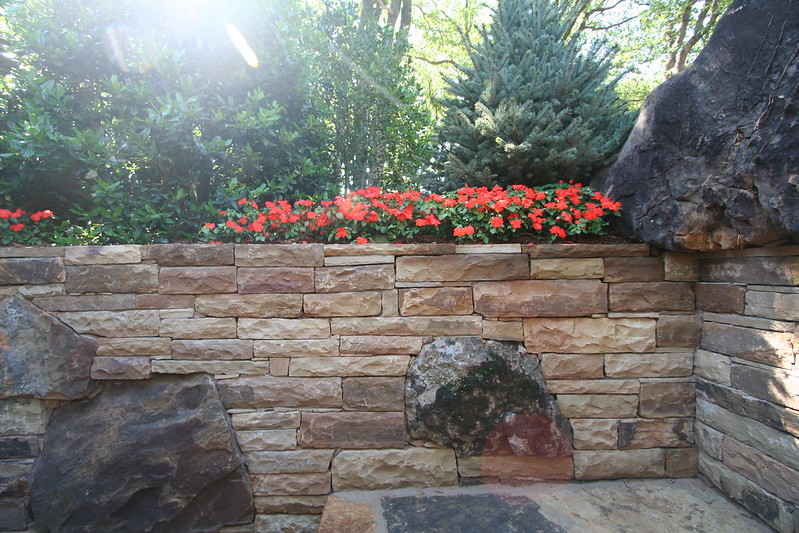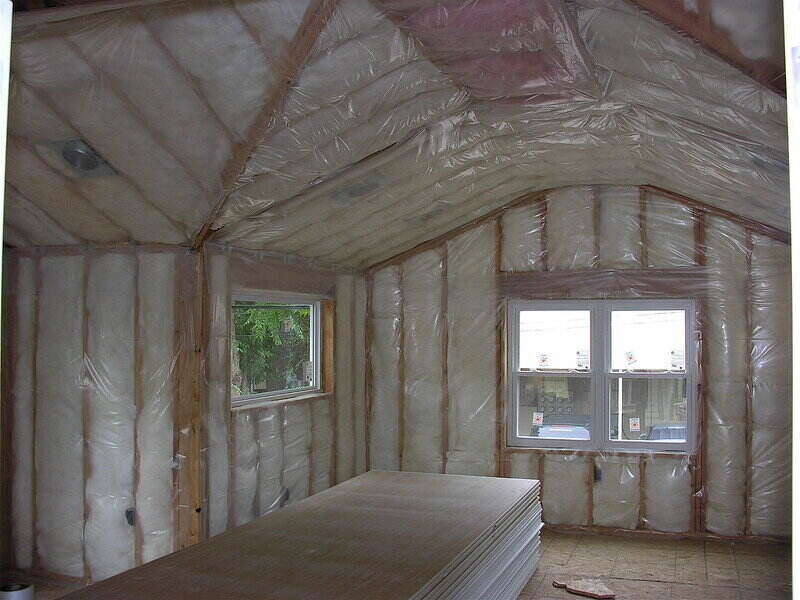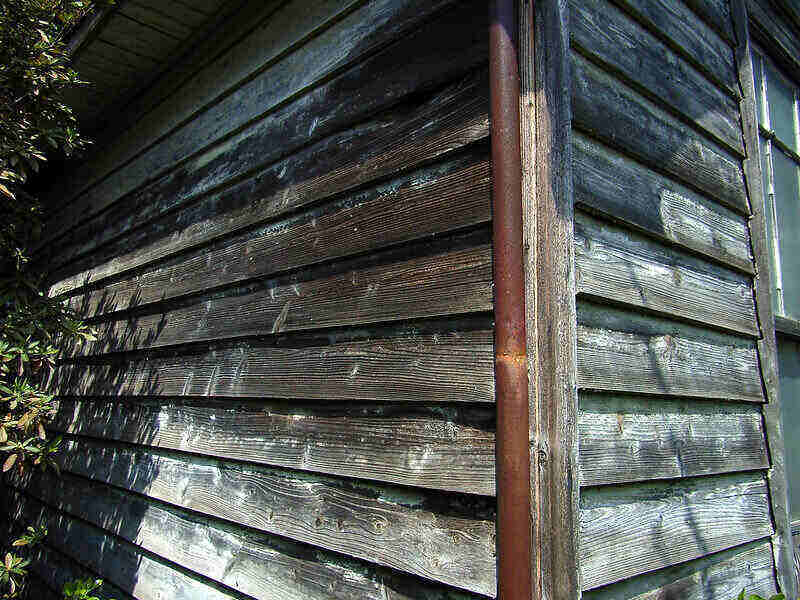Installing new flooring in your home can help elevate your living space and make it look (and feel) much more luxurious. Flooring installation in a 330-square-foot living room ranges from $1,435 to $5,655, with an average price of $3,140, including materials and labor.
Flooring installation costs can easily swing from low to high based on the size of your home and the materials selected. Still, on average, homeowners can expect to pay $10 per square foot or between $3 and $21 per square foot.
Let’s look at the various types of flooring available, along with all the other factors that affect the cost to install floors in your home.
In this pricing guide:
- Average Costs
- Cost Estimator by Material
- Other Factors That Affect Cost
- Related Services
- Pro Cost vs. DIY Cost
- Cost by Location
- FAQ
Average Flooring Installation Costs in 2025
| National Average Cost | $3,140 |
| Typical Price Range | $1,435 – $5,655 |
| Extreme Low-End Cost | $470 |
| Extreme High-End Cost | $10,288 |
On average, homeowners pay between $1,435 and $5,655 to install flooring in a 330-square-foot area.
To keep project costs on the lower end, you can choose cheaper materials, such as carpet and vinyl, which can result in prices as low as $470. On the other hand, premium materials like solid hardwood and installation in large areas will increase costs, which can go as high as $10,288 on average.
Flooring Installation Cost Estimator by Material
Flooring is an expensive necessity, but this doesn’t mean you should pay a fortune to install it in your home. Flooring installation costs vary depending on the quality and type of material you choose.
Next, we will guide you through the ins and outs of every different type of flooring material, as well as the associated costs, so you can choose what works best for you:
| Flooring Material | Average Cost Per Square Foot |
| Vinyl | $1 – $6 |
| Linoleum | $2 – $6 |
| Laminate | $1 – $7 |
| Polished Concrete | $3 – $8 |
| Rubber | $3 – $8 |
| Carpet | $2 – $10 |
| Bamboo | $2 – $10 |
| Cork | $3 – $10 |
| Engineered Wood | $3 – $11 |
| Stained Concrete | $3 – $14 |
| Hardwood | $3 – $14 |
| Ceramic | $2 – $20 |
| Porcelain | $2 – $30 |
| Natural Stone | $2 – $40 |
| Terrazzo | $19 – $58 |
Vinyl
What it is: Vinyl flooring is a type of synthetic flooring made from polyvinyl chloride (PVC), heated and pressed into thin layers. It has a wear layer, a print layer, and a core.
Best suited for: Any room in the house, including the kitchen and bathroom
Price (material only): $1 – $6 per square foot
| Pros | Cons |
| ✓ Water-resistant | ✗ Difficult to remove |
| ✓ Scratch resistant | ✗ Not eco-friendly |
| ✓ Low-maintenance | ✗ Does not add value |
| ✓ Easy to install | ✗ Can’t be refinished or repaired |
Linoleum
What it is: Linoleum flooring is entirely made from natural materials, like linseed oil, cork dust, wood flour, and pine resin. It can be sold in rolls or tiles.
Best suited for: Any room, including the kitchen and bathroom
Price (material only): $2 – $6 per square foot
| Pros | Cons |
| ✓ Suitable for high-traffic areas | ✗ Susceptible to dents |
| ✓ Water-resistant | ✗ Can turn dark or yellow with sunlight |
| ✓ Biodegradable | ✗ Has to be sealed |
Laminate
What it is: Laminate flooring is a synthetic material composed of multiple layers, including wood waste and image layers.
Best suited for: Any room, but avoid kitchens and full bathrooms
Price (material only): $1 – $7 per square foot
| Pros | Cons |
| ✓ Low-maintenance | ✗ Not suitable for moisture-prevalent areas |
| ✓ Easy to install | ✗ Prone to chips |
| ✓ Color does not fade | ✗ Does not add value |
Polished Concrete
What it is: Polished concrete flooring is a type of hard surface flooring made of concrete. This material is ground or polished during the finishing process to remove imperfections or introduce variations in the finish.
Best suited for: Living and dining spaces
Price (materials and labor): $3 – $8 per square foot
| Pros | Cons |
| ✓ Budget-friendly | ✗ Hard and cold to stand on |
| ✓ Low-maintenance | ✗ Prone to cracks |
| ✓ Resistant to water damage and mold | ✗ Takes a week to install |
Rubber
What it is: Rubber floorings are durable, low-maintenance, and have shock-absorbing properties. They are available in tiles, mats, and poured-in-place flooring.
Best suited for: Gyms, playrooms, and garages.
Price (material only): $3 – $8 per square foot
| Pros | Cons |
| ✓ Provide cushion | ✗ Unpleasant odor |
| ✓ Good sound absorption | ✗ Slippery when wet |
| ✓ Resilient | ✗ Not many color options |
Carpet
What it is: Carpet flooring is a type of floor covering made of textiles, available in many textures and weaves. Carpet fibers are typically formed of nylon, polyester, olefin, or wool.
Best suited for: Bedrooms and living spaces
Price (material only): $2 – $10 per square foot
| Pros | Cons |
| ✓ Budget-friendly | ✗ Holds dust and allergens |
| ✓ Soft and warm to stand on | ✗ Retains moisture |
| ✓ Easy to install | ✗ Difficult to clean |
| ✓ Slip-resistant | ✗ Prone to stains and odors |
Bamboo
What it is: Bamboo flooring is a type of flooring made from the bamboo plant. As such, bamboo is not real wood but a type of grass. It can be cut into thin strips and glued together to form planks, shredded and compressed into sheets, or engineered by gluing a thin layer to a plywood core.
Best suited for: Bedrooms and living spaces
Price (material only): $2 – $10 per square foot
| Pros | Cons |
| ✓ Eco-friendly | ✗ Not resistant to water |
| ✓ More affordable than hardwood | ✗ Prone to scratches |
| ✓ Easy to maintain | ✗ Can swell and buckle in humid climates |
Cork
What it is: Cork flooring is made from oak tree bark processed and baked into sheets or tiles.
Best suited for: Bedrooms, especially children’s
Price (material only): $3 – $10 per square foot
| Pros | Cons |
| ✓ Comfortable to stand on | ✗ Prone to scratches and dents |
| ✓ Easy to install and maintain | ✗ Fades from sunlight |
| ✓ Eco-friendly | ✗ Susceptible to humidity |
| ✓ Sound-dampening | ✗ Requires sealing yearly |
Engineered Wood
What it is: Engineered wood flooring is a type of flooring that has been manufactured to look like real wood, but it’s actually a decorative wood layer on top of a core layer of plywood.
Best suited for: Bedrooms and living spaces
Price (material only): $3 – $11 per square foot
| Pros | Cons |
| ✓ More affordable than solid wood | ✗ Fades from sunlight |
| ✓ More resistant to moisture hardwood | ✗ Needs regular maintenance |
| ✓ More resistant to temperature changes than hardwood | ✗ Susceptible to water damage and moisture |
| ✓ Adds value | ✗ Prone to dents and scratches |
Stained Concrete
What it is: Stained concrete floors are a type of concrete flooring that has been treated with a chemical stain to enhance its appearance and color.
Best suited for: Living and dining spaces
Price (materials and labor): $3 – $14 per square foot
| Pros | Cons |
| ✓ Durable | ✗ Needs to be sealed every few years |
| ✓ Design flexibility | ✗ Shows imperfections easily |
| ✓ Resistant to water damage and mold | ✗ Can only be done on fully cured concrete |
Hardwood
What it is: Hardwood is a type of flooring material harvested from slow-growing trees. The result is a dense and durable material. Types of wood include pine, red oak, Brazilian walnut, and ebony.
Best suited for: Bedrooms and living spaces
Price (material only): $3 – $14 per square foot
| Pros | Cons |
| ✓ Adds the most value to your home | ✗ Needs regular maintenance |
| ✓ Durable | ✗ Prone to termite damage |
| ✓ Easy to clean | ✗ Susceptible to scratches |
| ✓ Versatile and luxurious | ✗ Prone to water damage |
Ceramic
What it is: Ceramic tile is one of the most popular flooring materials due to its versatility. It’s made of clay, which has been fired to create a hard, durable surface. In addition, ceramic tiles can be glazed or unglazed.
Best suited for: Any room, including bathrooms, kitchens, laundry rooms, and even pools
Price (material only): $2 – $20 per square foot
| Pros | Cons |
| ✓ Durable | ✗ Cold and hard to stand on |
| ✓ Water-resistant | ✗ Prone to cracks and chips |
| ✓ Easy to clean and maintain | ✗ Lack of insulation |
Porcelain
What it is: Porcelain tiles are also made of clay, and fired to higher temperatures than ceramic, which makes them denser and impervious to water.
Best suited for: Any room, including bathrooms, kitchens, laundry rooms, and outdoors
Price (material only): $2 – $30 per square foot
| Pros | Cons |
| ✓ Waterproof | ✗ Difficult to cut and install |
| ✓ Wear-resistant | ✗ Heavy |
| ✓ Low maintenance | ✗ Difficult to repair |
| ✓ Durable | ✗ Needs strong subfloors |
Natural Stone
What it is: Stone flooring is generally tiles cut directly from natural stone blocks. There is a considerable variety of natural stone tiles, each with different properties and costs.
Best suited for: Depends on the type, but most are suited for bathrooms, kitchens, living spaces, and outdoors
Price (material only): $2 – $40 per square foot
- Slate: $2 – $23 per square foot
- Marble: $5 – $40 per square foot
- Granite: $2 – $15 per square foot
- Limestone: $3 – $10 per square foot
- Travertine: $2 – $30 per square foot
| Pros | Cons |
| ✓ Durable | ✗ Usually needs regular sealing |
| ✓ Adds value | ✗ Some types scratch easily |
| ✓ Eco-friendly | ✗ Hard and cold to stand on |
Terrazzo
What it is: Terrazzo flooring is made from a mixture of marble, granite, or glass chips that are set in concrete or resin.
Best suited for: Any room, including bathrooms, kitchens, laundry rooms, and outdoors (if sealed).
Price (materials and labor): $19 – $58 per square foot
- Poured terrazzo: $23 – $73 per square foot
- Terrazzo tiles: $16 – $42 per square foot
| Pros | Cons |
| ✓ Durable | ✗ Expensive |
| ✓ Endless design options | ✗ Not DIY-friendly |
| ✓ Eco-friendly | ✗ Difficult to find in stores |
Other Factors That Affect Cost
When it comes to flooring installation costs, there is more to consider than just the material you choose. The following are some of the most crucial cost factors:
- Area Size
- Labor
- New Subfloor and Underlayment
- New Baseboards
- Stairs
- Removing Old Flooring
- Moving Furniture
- Finish
Area Size
It’s not easy to estimate the costs for flooring installation based on the area’s square footage. This is because multiple factors influence the price, with flooring material being the most important. Nevertheless, flooring installation cost ranges from $3 to $21 per square foot, with an average of $10 per square foot.
The larger the installation area, the longer the installation process will take, increasing costs. The table below estimates the average prices based on your project’s size:
| Project Size | Average Costs |
| 50 sq. ft. | $150 – $1,050 |
| 100 sq. ft. | $300 – $2,100 |
| 200 sq. ft. | $600 – $4,200 |
| 300 sq. ft. | $900 – $6,300 |
| 400 sq. ft. | $1,200 – $8,400 |
| 1,000 sq. ft. | $3,000 – $21,000 |
| 2,000 sq. ft. | $6,000 – $42,000 |
Labor
Labor rates also depend on the material and the complexity of installation. Still, on average, the costs range between $1 and $8 per square foot.
If you’re looking for a more budget-friendly option, vinyl and laminate are your best bets—they’re usually less expensive than other materials because they are easier to install. On the other hand, if you’re looking for something more high-end, like porcelain tile or hardwood, expect to pay more—as these options typically require more time and effort to install.
New Subfloor and Underlayment
The subfloor is the foundation of your flooring that provides strength and rigidity. You may need to replace your subfloor if it has become damaged or worn down from years of use.
You may also need to replace it if you are installing flooring in an area where there has been flooding, water damage, or other issues with moisture in the past. Completely replacing the subfloors will cost you an extra $2 to $7 per square foot.
On the other hand, underlayment is the layer of material installed beneath the flooring to provide additional protection and cushioning. If you’re installing vinyl, laminate, or carpet flooring, you may need to replace the underlayment for an extra $2 to $5 per square foot.
New Baseboards
Baseboards are a type of trim typically installed along the edge of the wall. They can be made of wood or plastic and are used to cover gaps between the flooring and walls and for decorative purposes.
You may need to replace the baseboards when installing new flooring, which costs between $1 and $4 per linear foot.
Stairs
As mentioned previously, flooring installation costs depend on the difficulty of installation. Installing flooring on stairs can be challenging, and as such, the prices will be different than just laying down a few pieces of laminate on the floor and calling it a day.
Installing flooring on stairs can cost between $11 and $160 per step, depending on what type of flooring you choose.
Carpet, vinyl, and laminate are the most affordable options because they’re simple to install and take the least time. On the other hand, hardwood is much more expensive because it’s the most challenging and time-consuming option.
Removing Old Flooring
When it comes to new flooring installation, pros may also charge from $1 to $4 per square foot to remove the old flooring.
Flooring removal can be a time-consuming, laborious process. Some types of flooring are more challenging to remove than others, and it’s important to know what you’re dealing with before you get started. For example, removing hardwood and tile floors usually produces a lot of dust. With linoleum and vinyl, you will also have to remove all the glue left before installing new floors.
In addition, if you live in a home built before the 1970s, removing old flooring may cause asbestos to crumble and flake, which is dangerous to you and your family. The cost for testing for asbestos before removing flooring is around $495. In comparison, asbestos removal costs between $1,165 and $2,950 and should only be performed by a professional.
Moving Furniture
Moving furniture is another factor affecting flooring installation costs, as flooring companies usually charge per hour for this preparation work.
Depending on how much furniture needs to be moved out of the way and how many people are needed to perform the task, this could add significantly to overall installation costs, so you can save money by doing it yourself.
Finish
A finish is a thin layer of protective coating that protects the flooring underneath from moisture and other elements, like dirt and grime. Flooring materials like hardwood, stone, cork, linoleum, and concrete need regular finishes with chemicals like polyurethane, wax, and urethane. It costs from $1 to $7 per square foot.
Related Services
There are several related services that can complement a new flooring installation. Or maybe you want to install or replace the flooring in specific rooms in your home. In that case, the following information might help you:
Radiant Floor Heating
Suppose you’re thinking about home improvement and installing new flooring. In that case, it’s excellent to include radiant floor heating in the design. Radiant floor heating is a great way to keep your home warm and toasty all winter.
The costs for radiant floor heating will depend on the size of your home, but most homeowners pay between $1,740 and $5,990, or around $3,845.
You can also estimate the costs per type of system used. For example, hydronic radiant heating systems cost $6 to $20 per square foot, whereas solar systems cost $11 to $17 per square foot, and electric systems range from $8 to $15 per square foot
Bathroom Flooring
Your bathroom can be one of the most relaxing places in your home. It’s where you can take time for yourself and get away from the hustle and bustle of life. But, unfortunately, it can also be one of the most stressful areas to clean.
For that reason, most people think of tile as the only option for bathroom flooring. However, many other options, like vinyl and polished concrete, are just as beautiful and durable.
Bathroom flooring costs between $1,530 and $2,295, with an average of $1,910.
Kitchen Flooring Replacement
Kitchen flooring is one of the most critical aspects of your kitchen. It’s the first thing you see when you walk in and the last thing you see before you leave, so it’s essential to choose something that will make a lasting impression.
Replacing your kitchen flooring is a big project, costing around $3,115, with most homeowners paying between $1,435 and $5,520.
Pro Cost vs. DIY Cost
The cost to buy the tools and equipment for your flooring project ranges around $114, but this does not include material costs.
The table below shows the typical equipment for flooring installation and their average costs:
| DIY Equipment | Average Cost |
| Safety goggles | $14 |
| Level | $21 |
| Tape measure | $18 |
| Gloves | $18 |
| Chalk line | $12 |
| Tapping block | $25 |
| Spacers | $3 |
| Utility knife | $12 |
| Dust mask | $2 |
| Total cost: | $125 |
In addition to these tools, you may need specialized equipment depending on the type of flooring material you are installing. For example, if you are installing tile, you may need a wet saw to cut the tiles to size, a grout float, and a flooring trowel.
When installing hardwood, you may need a pneumatic nailer to attach the flooring to the subfloor, and a chop saw. For vinyl planks, you’ll need a pull bar. And so on.
It’s always a good idea to research the specific installation process for your chosen flooring material to ensure that you have the necessary tools and equipment on hand. However, the cost of professional installation may be worth it for the peace of mind and guarantee a high-quality result.
Cost of Flooring Installation by Location
The cost of flooring installation can vary depending on your location. In general, homeowners who live in metropolitan areas may have to pay more for labor than those who live in rural areas. This is because labor costs tend to be higher in urban areas due to factors such as a higher cost of living.
Additionally, there are possible additional costs if you live in a remote location or in an area where a particular flooring material isn’t available close by. For example, you may have to pay more if the materials are transported from a distant location. So it’s always a good idea to shop around and compare prices from different providers before deciding.
FAQ
Regarding flooring materials, some of the easiest to install and, therefore, cheapest options include laminate, vinyl, linoleum, and carpet. These materials are relatively lightweight, which makes them easier to handle and install than heavier materials like tile or hardwood. In addition, they can be installed over most existing floors.
Several types of flooring can increase the value of your home. In general, hardwood flooring is considered one of the best options because it offers a return on investment, it’s durable, attractive, and adds a warm and natural feel to any space.
Other high-value flooring options include natural stone, engineered hardwood, and bamboo.
There are several signs that you may need to replace your flooring. Some of the most common signs include:
Worn or damaged surfaces: Scratches, dents, or other signs of wear and tear
Outdated style: Obsolete colors or patterns that no longer match the aesthetic of your home
Water damage: Water can cause severe damage to some types of flooring, such as warping, staining, or the growth of mold and mildew.
Poor installation: If your flooring is poorly installed, it might be prone to problems such as gaps, uneven surfaces, or loose tiles. In these cases, it may be best to remove the old flooring and start fresh with a new floor.
If you have hardwood floors, you may be able to refinish them instead of replacing everything. However, suppose you are unsure whether you need new flooring. In that case, it’s always a good idea to consult a professional flooring contractor for advice. They can inspect your flooring and help you determine the best course of action.
Final Thoughts
Flooring installation costs around $3,140 per room on average, so it can be a significant investment. However, it’s better than doing it yourself and ending up with a poorly installed floor. So, bid adieu to your newest DIY project and find the best flooring installer near you to do this job.
Note: LawnStarter may get a referral fee for matching you with contractors in your area.
Main Image Credit: DonNichols / Canva Pro / License




